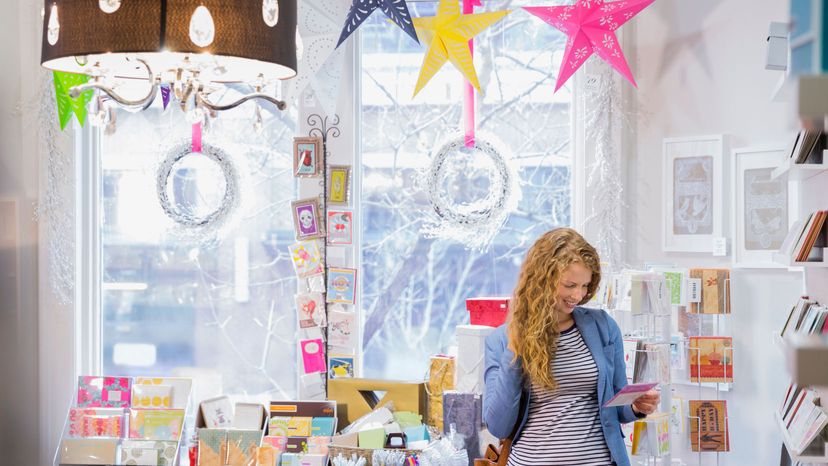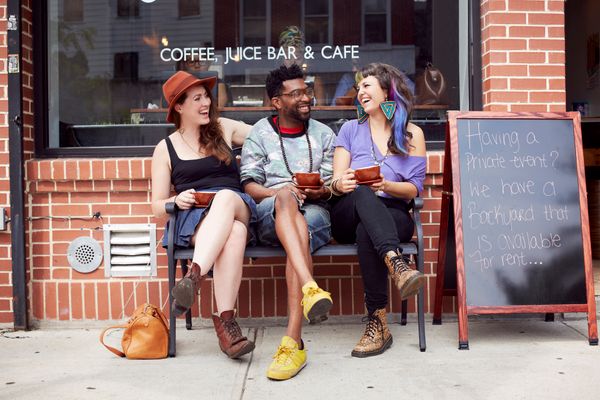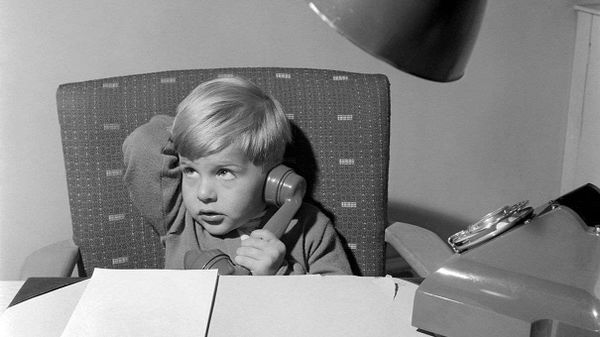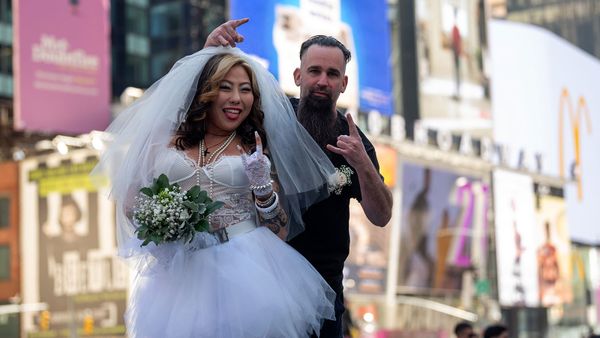
Some millennials are taking credit for killing the top sheet, the huge wedding, the mega-gym and who knows what else. But despite all that destruction, one surprising thing they're not totally over is the decidedly retro greeting card.
According to 2017 research provided by Hallmark Cards (who should know), millennials — those born roughly between 1981 and 1999 — represent nearly 20 percent of the dollars spent on greeting cards and are growing their spending faster than any other generational segment.
Advertisement
Why would that be? It seems that the generation that has only ever known the ease and convenience of digital communication actually longs for a more personal touch that requires more than a few keystrokes and emojis to send. "In focus groups, we hear that millennials enjoy tactile experiences, like giving and receiving a paper card," emails Jaclyn Voran, a spokeswoman for Hallmark Cards.
"As a millennial, I understand why people believe that cards in general are becoming superfluous. However, I believe that in a world where making genuine connection is becoming increasingly difficult, and life is becoming increasingly sped up, there are few ways that show real care more than a handwritten card," says Ian Britton, a San Diego-based digital marketing strategist for the educational website Get More Math in an email interview.
V-Style fashion blogger Vanessa Valiente, another millennial, concurs with Britton. "Without fail I give a birthday card, and every single person appreciates my hand-written card in this age of impatience, social media and insincerity. A birthday card means more now than it ever has," she emails.
Worldwide, the greeting card industry is projected to decline by $20 billion by 2024. Hallmark's significant 2015 downsizing was caused in large part by lower sales thanks to much cheaper virtual alternatives.
"Cards have also gotten ridiculously expensive so that a birthday card is often $3-$5 or even more," says Amanda Ponzar with Community Health Charities in Alexandria, Virginia. "I'd rather add that amount to a gift card or buy a present for the recipient. And for me personally, I'd rather receive a $5 Starbucks card vs. a birthday card that cost $5."
She's not alone in that belief. But some companies are banking that millennials will pay for cards if they appeal to their unique tastes and humor. Hallmark funds a brand called Easy, Tiger, which is aimed at people in their 20s and 30s and has a snarky tone. The cards run around $2.50. (American Greetings has a similar brand called justWink.) But millennials are also attracted to higher-priced, elaborately designed premium cards, which may cost $7-$10. "On average, they buy greeting cards that are 20 percent higher-priced than older age groups," says Hallmark's Voran.
Like vinyl records, paper greeting cards may yet hold their own despite the odds. Life coach Brandyce Stephenson is in her 30s and loves getting birthday cards. "In this day and age of technology and birthday wishes on Facebook from my 1,000 closest friends, some of whom I don't actually know, getting a birthday card is a welcome surprise," she emails. "It's a joy to open your mailbox and see a handwritten note with words of positivity."
Advertisement


